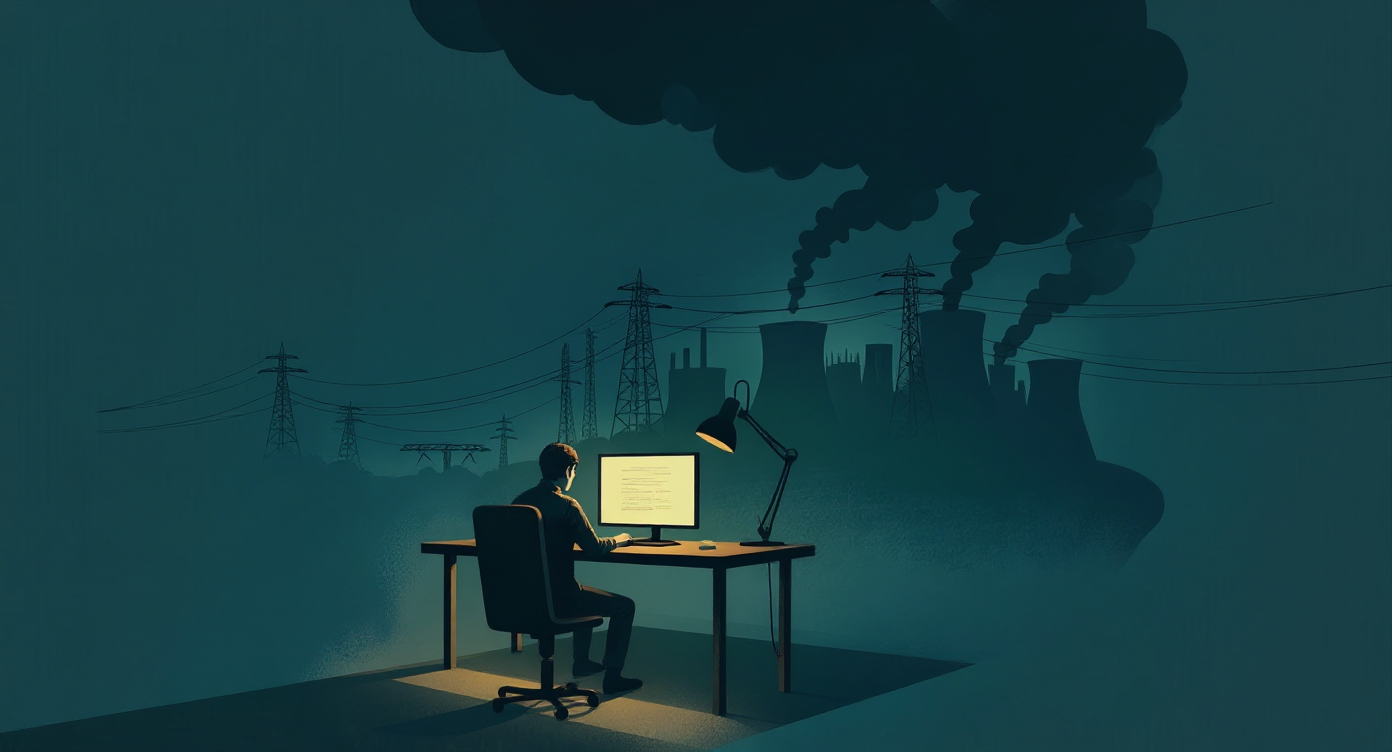AI’s Energy Appetite

Every time we ask an AI tool a question, it silently consumes electricity and water. But until now, we never knew how much. Google has set the record straight by publishing calculations from its Gemini model. Gemini is an artificial intelligence system that can process text, images, video, and audio.
According to the company, one text query to the system consumes as much energy as watching nine seconds of TV, uses about five drops of water, and releases 0.03 grams of CO₂. This doesn’t seem like much, right? But imagine millions of users making multiple requests at the same time, several times per minute. These numbers add up quickly. So, how much electricity will it take to satisfy our growing appetite for artificial intelligence? If we continue to use AI as we do now, we will need more electricity. Because of this, major tech executives suggested that nuclear power is an inevitable solution to meet these needs. The cost of one data center could be around $100 billion. In five years, it is predicted that around 10% of the US energy demand will come from data centers.
But what about European countries? Governments across the continent advocate clean energy, but still have disagreements about this topic. France receives more than half of its electricity from nuclear plants. Finland has one of the largest reactors in the world. Germany, once the leading nuclear user, shut down its last reactors in 2023 in response to environmental campaigns. Belgium had a plan to phase out its reactors, but it was dropped by parliament. So, the role of nuclear power remains contentious.
People use AI every day, from answering simple questions and writing essays to planning a trip and even helping understand medical diagnostics. Each interaction requires energy, and it’s not comparable to using Google Search. In fact, a single Google query only takes about 0.0003 kWh of electricity, similar to keeping a 60-watt light bulb on for 17 seconds. Now, multiply these small interactions by billions of users worldwide, and the scale becomes enormous. AI operates on electricity, and it has to come from somewhere.
If European countries continue to reject nuclear energy, their dependence on renewable energy and imports will increase. This energy is common in Europe, but it is very expensive, as the sun does not shine all the time, and the wind does not blow on schedule. Even the most modern energy storage technologies cannot fully compensate for this. There are many examples when the overreliance on clean energy went wrong. A sudden drop in solar power led to a massive blackout in the Iberian Peninsula earlier this year. As a result, Spain and Portugal were left in complete darkness for nearly ten hours.
Artificial intelligence and digital technologies will not wait. Every request to a chatbot or image generator requires resources, and these requests are multiplying daily. If Europe does not find a way to provide stable and clean electricity, then either technological development will slow down, or the region will depend on external energy suppliers.
AI is convenient for users, but it is a burden on infrastructure. Every time we ask a question, we are essentially voting for new power plants to be built. And while Europe debates its energy future, demand will only grow.
One possible solution is not just to argue about whether to build or close nuclear power plants, but to learn how to manage the demand itself. For example, if AI requires a lot of power, regulations could encourage companies to develop energy-efficient algorithms. This would reduce the pressure on the grid and lower dependence on controversial sources, be it nuclear or gas.
Maybe in decades we will have revolutionary technologies that will replace atomic energy, coal, and gas. But right now, the world is faced with the fact that AI requires energy today. Is Europe ready to answer honestly, where will this power come from?
The post AI’s Energy Appetite was first published by the Foundation for Economic Education, and is republished here with permission. Please support their efforts.



